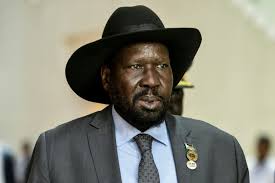South Sudan’s President Salva Kiir Mayardit has dismissed the country’s finance minister, continuing a pattern of frequent changes in the top economic post as the nation struggles with rising inflation, falling oil revenue, and political instability.
The dismissal, which was announced by state-owned radio on Thursday evening, affected Marial Dongrin Ater, who had only been in office since July 2024. He becomes the seventh finance minister to be removed from the position since 2020. No reason was given for his sacking.
According to the announcement, Kiir has appointed Athian Ding Athian as the new minister of finance. Athian is not new to the position, having previously served as finance minister between 2020 and 2021. State radio also reported that the president fired the minister in charge of investment, though no further details were provided about the replacement.
The shake-up comes at a time when South Sudan’s economy is under severe strain. The country relies heavily on crude oil exports for revenue, but output has been in decline since the civil war that ravaged the nation between 2013 and 2018. More recently, oil exports have been disrupted by the conflict in neighboring Sudan, further cutting into government earnings.
The International Monetary Fund (IMF) has forecast a 4.3% contraction in South Sudan’s economy for 2025. Inflation is expected to surge to 65.7%, placing more hardship on citizens who already face high food prices, fuel shortages, and limited public services. Economists say the constant reshuffling of finance ministers has made it difficult to establish consistent fiscal policy or long-term reforms.
Political observers believe Kiir’s decision to bring back Athian Ding Athian suggests an attempt to stabilize the finance ministry by appointing someone with prior experience. However, critics argue that the revolving door in key ministries reflects deeper political struggles within the ruling party and the government.
South Sudan’s fragile political environment has also added to concerns about the future of peace and economic recovery. In March 2025, First Vice President Riek Machar, a longtime rival of President Kiir, was placed under house arrest. The government accused Machar of contacting his supporters and allegedly “agitating them to rebel against the government with the aim of disrupting peace so that elections are not held.”
The arrest of Machar raised fears of renewed conflict in the world’s youngest country, which has battled cycles of violence since it gained independence from Sudan in 2011. Machar’s party has denied the government’s allegations, insisting that he is committed to peace.
Political analysts say Kiir’s latest moves may also be connected to efforts to consolidate power ahead of the country’s long-delayed elections. With the economy in crisis and the political climate tense, the sacking of key ministers could deepen uncertainty and affect investor confidence.
For ordinary South Sudanese citizens, the economic challenges remain severe. Prices of essential goods have soared due to the weakening local currency and high inflation, while many families rely on humanitarian aid. International agencies have warned that food insecurity is worsening, especially in regions affected by flooding, displacement, and violence.
The frequent changes in the finance ministry have also discouraged international donors and partners who seek stability and transparency in managing aid and financial support. Observers argue that without a steady hand in economic leadership, South Sudan risks sliding further into crisis.
President Kiir, who has been in power since independence, continues to face pressure both locally and internationally to ensure peace, restore economic stability, and prepare the country for credible elections. Whether the reappointment of Athian Ding Athian will calm the economic storm remains uncertain.
